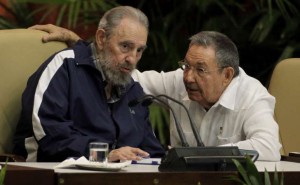Democratic presidential candidates Hillary Rodham Clinton and Bernie Sanders differ on quite a bit these days.
One of the more intriguing differences is seen in how they want the vacancy on the U.S. Supreme Court to be filled.
Sanders would pull the nomination of Merrick Garland — who President Obama has appointed to replace the late Justice Antonin Scalia — off the table if he is elected president in November. He then would pick someone of his choosing.
Clinton doesn’t even think that’s a topic for discussion. She said this week that Obama is president until January and he deserves to have his pick for the court considered by the U.S. Senate.
She also takes sharp aim at the reason Senate Majority Leader Mitch McConnell gives for obstructing this nomination, for wanting the next president to make the choice. McConnell said “the American people deserve a voice” in determining who that person should be.
Fine, said Clinton. “I was one of the 65 million people who voted” for President Obama’s re-election in 2012, she said, adding that McConnell is now trying to silence her voice, along with tens of millions of other voters who choose Obama over Republican nominee Mitt Romney.
You got that right, Mme. Secretary.
I, too, am among the nearly 66 million Americans who cast their ballots for the president. I don’t like being silenced any more than Clinton does. Nor should the rest of those who cast their ballots for the president.
Don’t we operate in a system that grants power to the candidate who gets more votes than the other person?
Yes, we have one president at a time. The man in the hot seat right now still has all the power entrusted to him by the U.S. Constitution.
Let this nomination go forward, Mr. Majority Leader. Americans’ voices have been heard.









